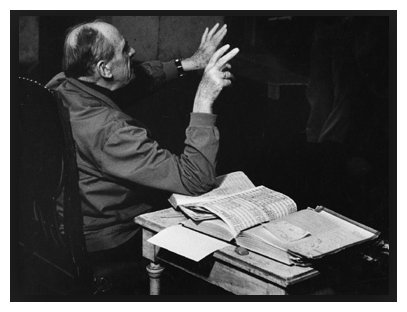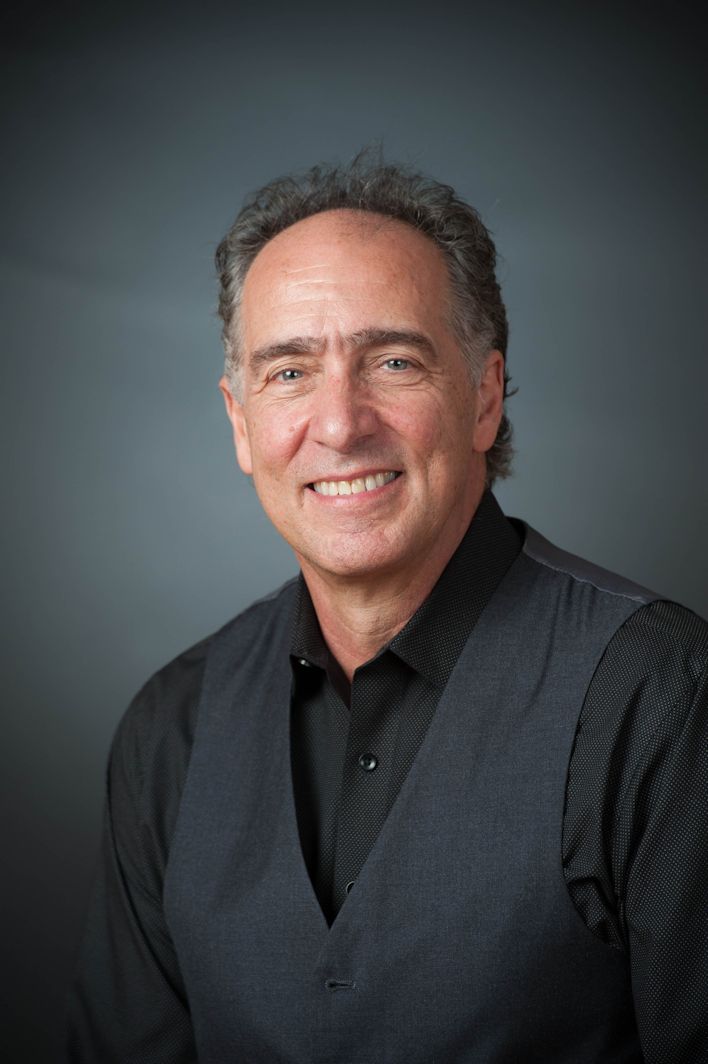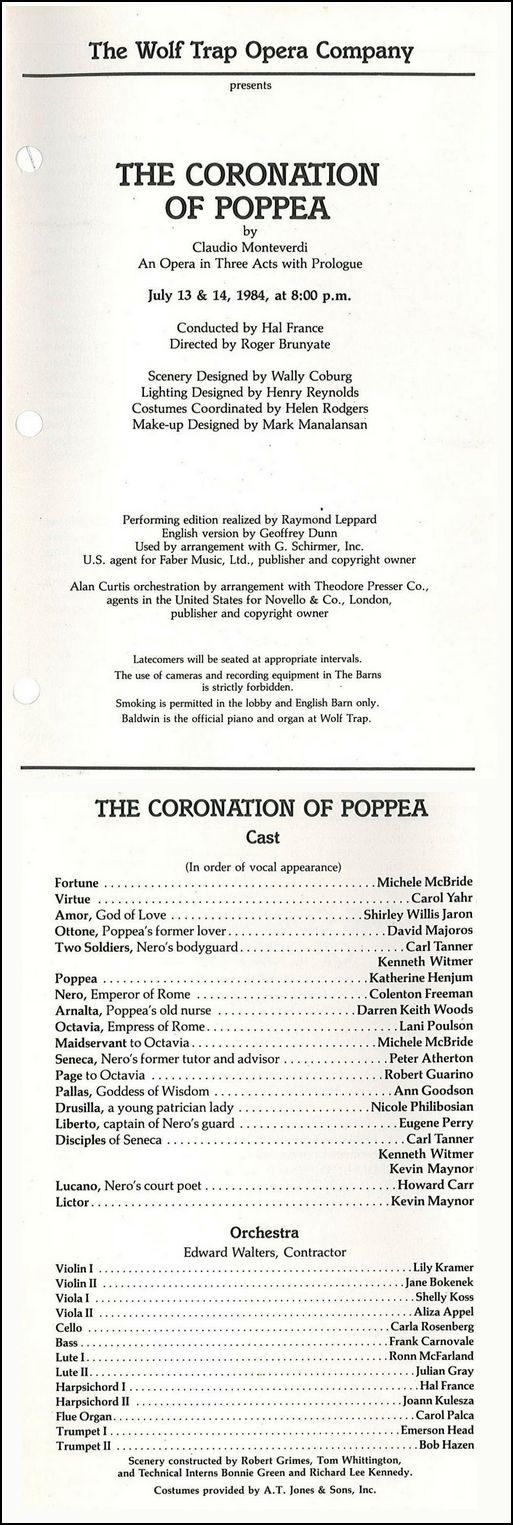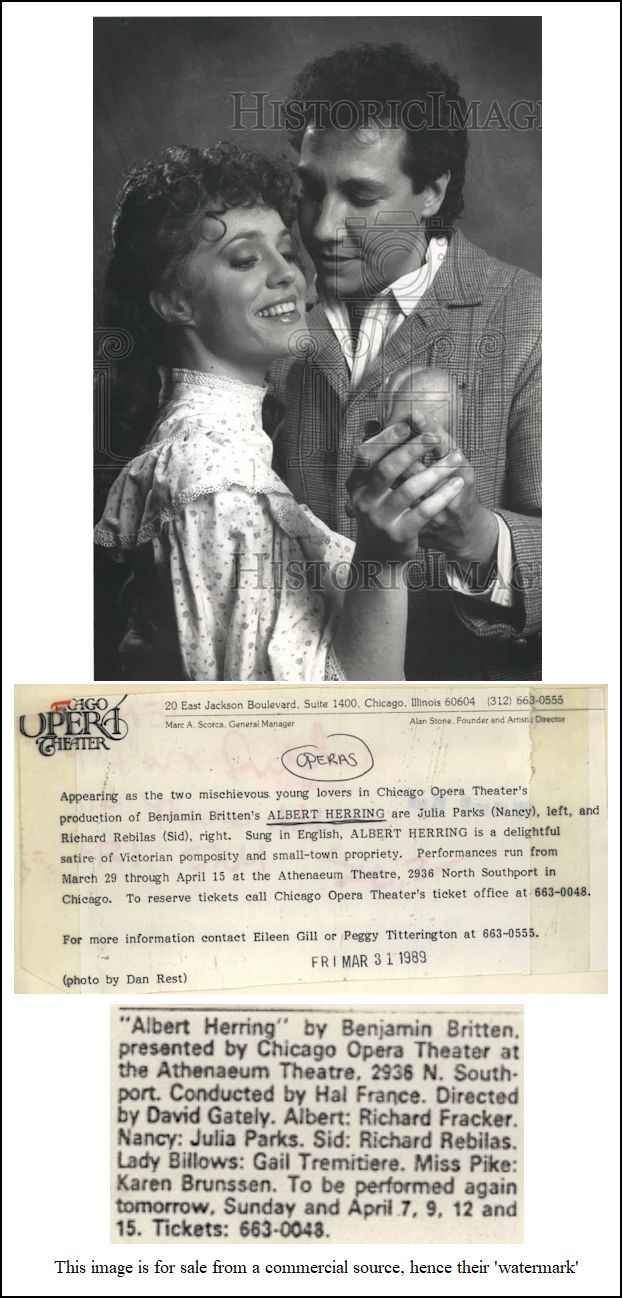|
During a thirty five-year professional career as an opera conductor,
Hal France has led organizations and performed with opera companies
and symphony orchestras around the United States. While conducting throughout
the United States and abroad his activities include speaking and advocating
for arts education. He has completed tenures as Executive Director of
KANEKO (2008–2012), Artistic Director of Opera Omaha (1995–2005), and
Music Director of the Orlando Philharmonic (1999-2006). He served
as an Adjunct Professor at the UNO School of Music from 2007-2016.
Mr. France has collaborated with many of this country’s opera companies.
In 1981, he made his professional debut at Washington’s Kennedy Center. He
served the Houston Grand Opera first as Associate Conductor and later
as Resident Conductor over a four-year span. He has conducted performances
for the New York City Opera, Seattle Opera, Florida Grand Opera, Opera
Theatre of Saint Louis, Santa Fe Opera, Glimmerglass Opera, Opera Company
of Philadelphia, Lyric Opera of Kansas City, Chautauqua Opera, Minnesota
Opera, Cleveland Opera, Opera Carolina, Wolf Trap Opera, Opera Festival
of New Jersey, Tulsa Opera, Portland Opera, Kentucky Opera, and Orlando
Opera.
He has guest conducted the Royal Philharmonic, the National Symphony,
the New Jersey Symphony, the Richmond Symphony and the Jacksonville
Symphony. In 1992, he made his European opera debut with the Royal
Opera of Stockholm with a production of Maria Stuarda.
Hal France has been involved in numerous community collaborations
that include:
- BlueBarn Music Festival
- Habitat for Humanity Omaha’s Multi-Faith
Music Festival
- National Hunger Awareness Day Convocation
- Why Arts
- Omaha Performing Arts 1200 Series Young
Artist Nights
- Kountze Memorial Lutheran Food Pantry
He served as the first Executive Director of KANEKO a non-profit
organization founded by the artist Jun Kaneko and his wife Ree in Omaha,
Nebraska. During a four-year tenure he was integrally involved in every
aspect of the organization’s creativity based programming and infrastructure.
He promoted and helped design an extensive number of community partnerships,
the Great Minds Lecture series, performances, exhibitions, workshops
and educational outreach programs that brought people into a forum of
ideas and collaboration.
Mr. France served as Music Director of the Mobile Opera and Lake
George Opera Festival and as Music Director of Opera Omaha before
assuming the position of Artistic Director. He has been on the
music staffs of the Glyndebourne Festival, Aspen Festival and the Netherlands
Opera. He has degrees from Northwestern University and the University
of Cincinnati College Conservatory of Music and a fellowship from the
Juilliard Opera Center. Recently he received an honorary
doctorate from the University of Nebraska at Omaha and an Admiralty
in the Nebraska Navy from the Governor of the state.
Recent Activity (Selected Highlights)
- Pianist, Vespers Music: Recital Performance
with Taylor Stayton.
- Pianist and Music Director, Performance of students from Speed
Dating with Sound Health, Buffett Cancer Center, UNMC.
- Musician and Speaker, Food for the Soul Series, Omaha Conservatory
of Music
- Guest Conductor/Instructor Hansel and Gretel opera performances,
Depaul University.
- Music Director, Indecent, BLUEBARN Theatre.
- Pianist, International Vocal Health Day Performances, Buffett
Cancer Center, UNMC.
- Performer, Chamber Music, Crossroad Music Festival
== From the website of the University of Nebraska
Omaha
--- --- --- --- ---
--- --- --- ---
Hal France is a sought after guest conductor of opera throughout
the U.S.A. He has conducted nine productions for the Houston Grand
Opera, eight productions for Central City Opera (Show Boat,
La Fanciulla del West, L’Italiana in Algeri, Gloriana,
A Midsummer Night’s Dream, Gian
Carlo Menotti's The Saint of Bleeker Street, Candide, and Carlisle Floyd's Susannah),
four productions for Opera Theater of St. Louis (including the world
premiere of Stephen Oliver's Beauty and the Beast), five productions
for Kentucky Opera, three productions each for the New York City Opera
(Oliver Knussen's Where
the Wild Things Are, The Ballad of Baby Doe, and the world
premiere of Ezra Laderman's
Marilyn) and Orlando Opera (Macbeth, The Merry Widow
and Il Barbiere di Siviglia), and two productions each for
Cleveland Opera (Tosca and Rigoletto), Madison Opera
(La Boheme and The Magic Flute), Calgary Opera
(Tosca and The Ballad of Baby Doe), and
Utah Opera (Lucia di Lammermoor and Romeo et Juliette).
Mr. France has served as Artistic Director of Opera Omaha, as Music
Director of the Orlando Philharmonic, as Resident and Associate Conductor
for the Houston Grand Opera, Music Director of the Mobile Opera, Lake
George Opera Festival, and as Music Director of Opera Omaha before assuming
the position of Artistic Director. He was also Music Director of the
Orlando Philharmonic. Early in his career, he served on the music staffs
of the Glyndebourne Festival, Aspen Festival, and the Netherlands Opera.
He began his professional career as assistant to John DeMain at the
Houston Grand Opera.
Elsewhere, he has conducted productions for Seattle Opera and Florida
Grand Opera (Floyd's The Passion of Jonathan Wade), Minnesota
Opera (Madama Butterfly), Opera Company of Philadelphia (The
Rake’s Progress), Santa Fe Opera (Ingvar Lidholm's A Dream Play
- world premiere), Portland Opera (Tosca), Chautauqua Opera,
Glimmerglass Opera (Iolanthe), Tulsa Opera (Don Pasquale),
Opera Carolina, Chicago Opera Theater, Wolf Trap Opera, Opera Festival
of New Jersey, Lyric Opera of Kansas City, Hawaii Opera Theater,, Arkansas
Opera Theater, Mobile Opera, the Manhattan School of Music (Street
Scene), and Ricky Ian Gordon's The Grapes of Wrath. In Europe,
he has conducted Maria Stuarda with the Royal Opera in
Stockholm.
Recent engagements include productions of Bluebeard’s Castle
and Falstaff for Opera Omaha, Macbeth for
Chautauqua Opera, Rigoletto, Carmina Burana and I
Pagliacci and The Magic Flute for Hawaii Opera, Man
of La Mancha for Utah Opera, Mark Adamo's Little
Women for Northwestern University, Show Boat plus a
double-bill of works by David Lang for Portland Opera, and The Pirates
of Penzance for Lyric Opera of Kansas City.
On the concert stage, he has conducted the Richmond Symphony, Orlando
Philharmonic, Nebraska Festival Orchestra and Jacksonville Symphony
in subscription concerts, and the Chautauqua Festival Orchestra, Juilliard
Symphony, and St. Louis Symphony in special galas
== From the website of Pinnacle Arts Management
(with additions)
== Names which are links in this box and below refer to my
interviews elsewhere on my website. BD
|
 Walter Felsenstein (30 May 1901 – 8 October 1975) was an Austrian
theater and opera director. He was one of the most important
exponents of textual accuracy, and gave productions in which dramatic
and musical values were exquisitely researched and balanced. In
1947 he created the Komische Oper in East Berlin, where he worked as
director until his death.
Walter Felsenstein (30 May 1901 – 8 October 1975) was an Austrian
theater and opera director. He was one of the most important
exponents of textual accuracy, and gave productions in which dramatic
and musical values were exquisitely researched and balanced. In
1947 he created the Komische Oper in East Berlin, where he worked as
director until his death. 

